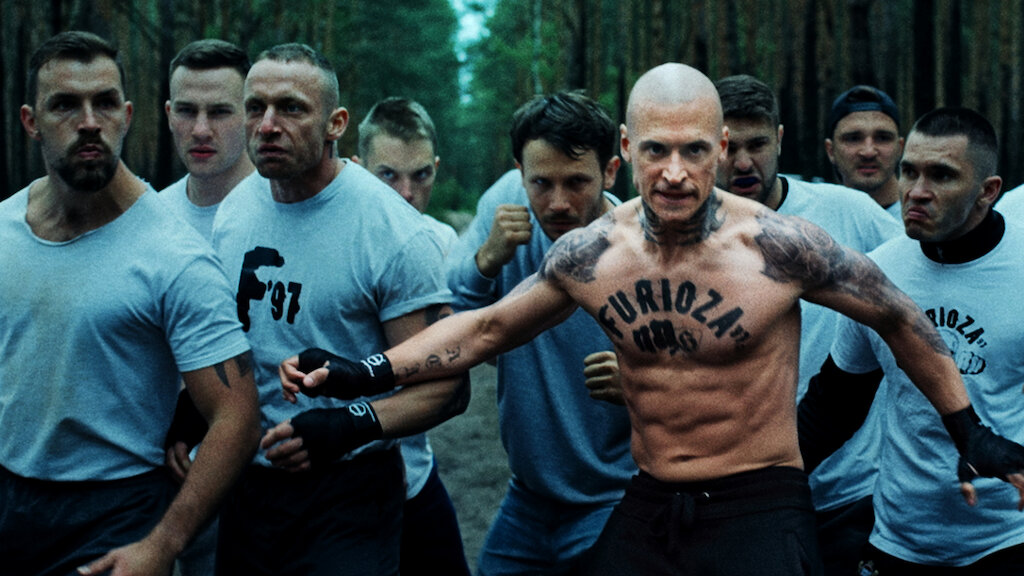Cyprian T. Olencki’s Polish-original movie ‘Furioza’ comes off as a refreshing foray into the gangster thriller genre. The movie probes into the titular group of football hooligans in the city of Gdynia, unfolding through the eyes of an outsider. Dawid is the protagonist of the story, whose brother Kaszub is the gang leader. Propelled by the request of his old love, Dawid officially becomes a part of the gang while leading a double life as a police informer.
As lies, secrecy, betrayal, and rivalry take root, the story becomes bloodier, gradually spiraling out of control. Following its release, the movie garnered recognition from fans and critics, thanks to its stellar cast ensemble and excellent production value. However, following the finale, you must wonder if the story has a real-life counterpart. If the thought is indeed bugging you, allow us to probe deeper.
Is Furioza Based on A True Story? Is Furioza A Real Gang?
No, ‘Furioza’ is not based on a true story. However, the story’s premise may have some truth in the cultural context of Poland. The movie is about the namesake group of football hooligans, and as we probe further, we come to know that football hooliganism has been the center of debate in the country for a while. Tomasz Klimala and Cyprian T. Olencki jointly wrote the screenplay for the film, while Tomasz Dembicki earned a credit as an associate screenplay author.

While working on the script, the writers were possibly inspired by the real-life instances of football hooliganism in Poland and its alleged ties with the country’s criminal underworld. The first instances of riots during a football match date back to the mid-1930s. Following a match between Cracovia and Ruch Chorzów on June 2, 1935, the police had to intervene and pacify the rioters. Sporadic riots erupted among football fans in the next few decades as the “scarfers” (the name designated to hardcore Polish football fans) and these fan clubs grew in number. However, only in the 1980s would these hooligan groups would form official ties with the clubs, creating a syndicated system.
On May 9, 1980, Legia Warsaw played the Polish Cup finals against Lech Poznań in one of the most notorious games in the country’s history. Although Legia won the title, the match is remembered as one of the most infamous clashes between football fans, leading to quite a few injuries. Following the incident, fans of the two clubs became natural enemies, while the Communist government of Poland attempted to shove the mishap under the rug. Despite the lack of statistical evidence, as many as 99 incidents of civil unrest erupted at football games between 1984 and 1988.
However, till the late 1980s, the football clubs were state-sponsored, where the supporters did not have much bargaining power. Following the introduction of a free-market economy, the coalitions between clubs and hooligan groups became solidified. The groups are often associated with the skinhead subculture, which came to prominence in the UK in the 1960s. Gradually, the incidents became less spontaneous and more deliberate, “ustawka fights,” which became commonplace in the 90s.
On May 29, 1993, before a World Cup qualifier match between Poland and England, a skinhead member of the K. S. Cracovia fighting squad stabbed a supporter of Pogoń Szczecin to death, steering the situation for the worse. After the death, hooliganism spread to minor leagues and urban areas, recruiting frenzied fans. From Młoda Arka to Jude Gang, several hooligan gangs sprouted as violence increased.
From 2005 to 2006, eight people died in a span of twelve months, all in incidents related to football hooliganism. As the twenty-first century trudged forward, detainment of fans and modernization of stadiums followed, forcing the hooligan groups to lay underground. However, hooliganism remains popular in pockets of the country, erupting in cases like the tragic death of Dawid Dziedzic. Therefore, while the movie’s story is fictional, it still stands on quite a realistic premise, be assured.
Read More: Furioza Ending, Explained


You must be logged in to post a comment.